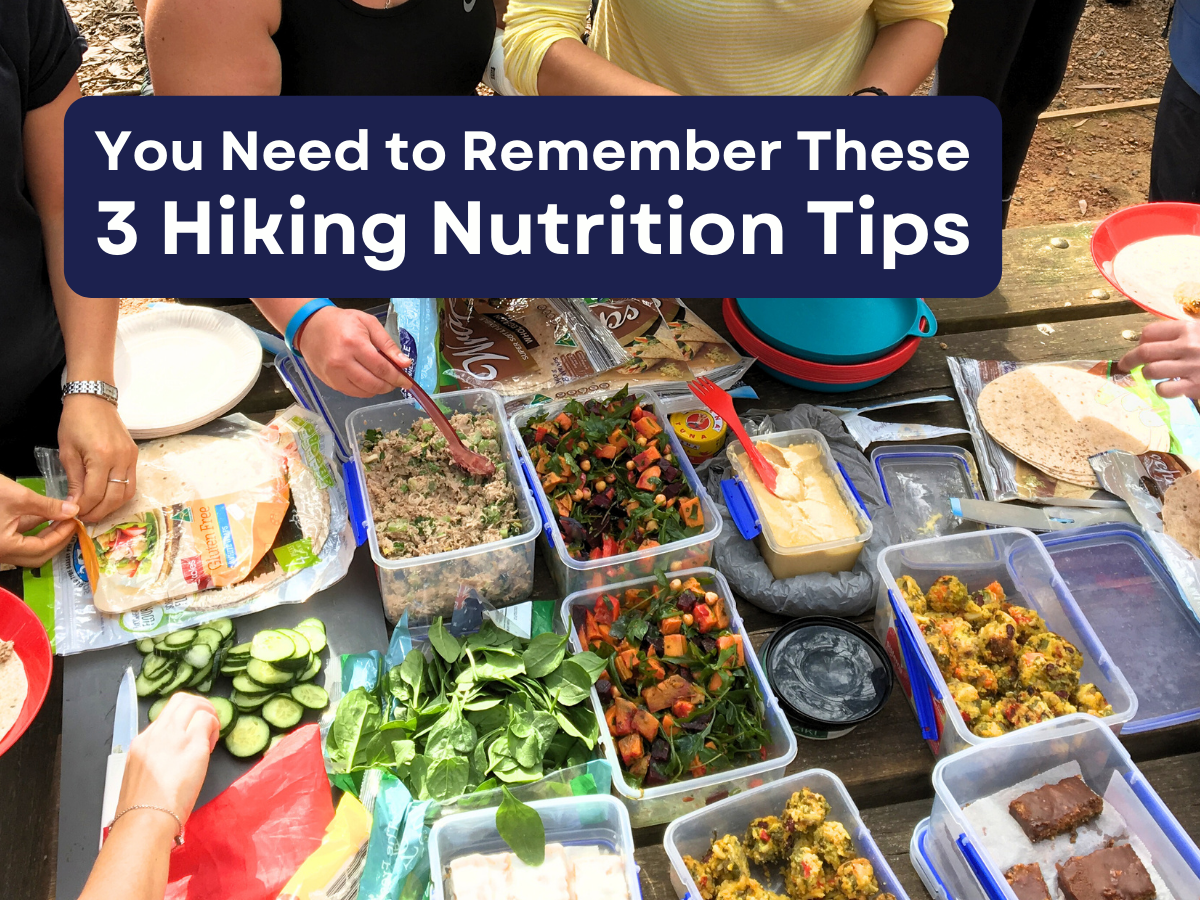There are few things more important than fuelling your body the right way on your hike. Eating for bushwalking is very different from eating for general exercise. Your food intake during a day trip, overnight walk, or longer trip has a direct impact on how you fare during your activity. Find out why your hiking nutrition is so important and my top three tips that you need to remember for your next hike.
When you’re hiking, the duration can vary from just a few hours to multiple days. But no matter how long your hike is, you will need to carry all your nutritional needs during this time. Therefore, you need to adapt your eating accordingly. As a nutritionist, the main thing I see on our hikes is the perception of food that people have when undertaking long duration exercise. We are constantly challenging people’s thoughts and feelings that they are eating or hiking to lose weight versus eating to fuel your body and hiking for excitement and connection.
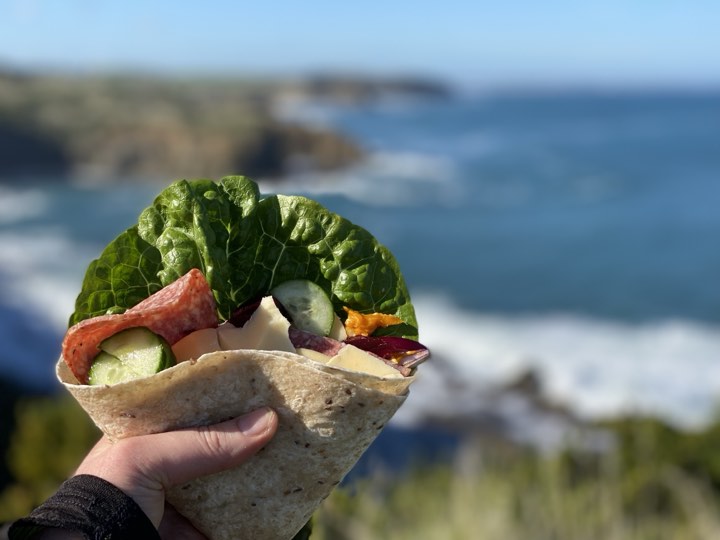
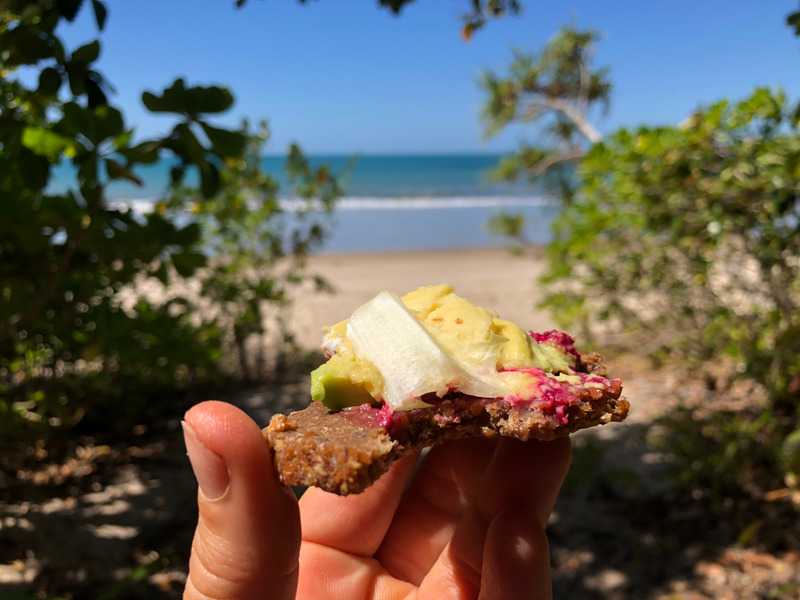
If you walk without the proper caloric input, there is a very high chance you will burn out after several hours and start breaking down muscle mass. This breakdown of muscles will not only impact your ability to continue walking, but will further impede your ability to burn calories in the future. This goes against the whole role of nutrition for walking, which aims to get you through the hike and help you get stronger for the next one. Isn’t your goal to complete the walk? Then why reduce this chance by not having the right nutrition to finish happy and energetic?
Here are my top three tips for walking nutrition and hydration.
First, hydration. It is crucially important to stay hydrated when walking, and you’ll need even more depending on the heat and the weight you’re carrying; this all impacts the amount you sweat, i.e. the water you lose. When hiking for more than ninety minutes, you should be taking some sort of electrolyte additive to maintain electrolyte balance in your body. I prefer using a bladder to carry water as it’s always available and much harder to leave behind or spill. I’ve seen plenty of bottles fall out of side pockets! With a bladder, you can sip often, to keep your fluid levels up and avoid dehydration. Remember: when you feel thirsty, you are already dehydrated. We also suggest purifying the water you collect on the trail, either with filtration or ultra-violet sterilisation.
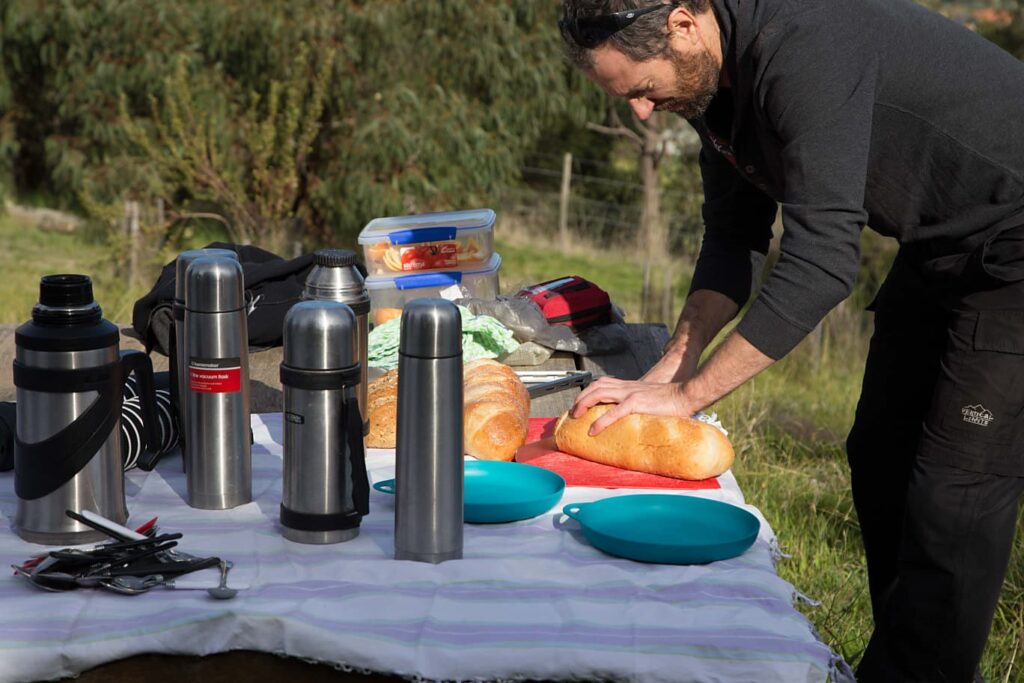
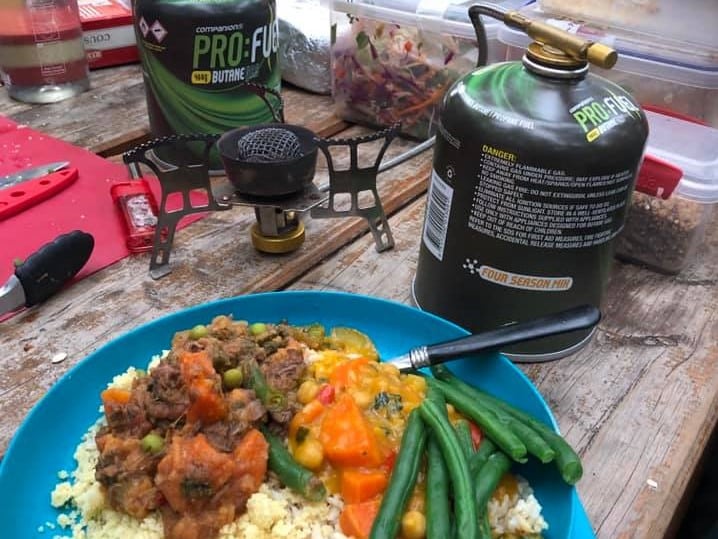
Carry high energy dense foods which are the calories per gram of food. For example, an apple has an energy density of 60 meaning that there are 60 calories of energy for every 100g of weight. Almonds, cashews, and peanuts are around 600 calories/100g, and so are about 10x more calorie dense than apples. Calorie dense foods allow you to obtain more energy per gram weight of food, so you can carry less! Your pack should be no more than a third of your bodyweight so imagine packing your tent, sleeping bag, clothes, cooking equipment, water, then trying to fit in kilograms of healthy but low energy dense food! A better strategy is to load up on fresh fruit and vegetables before and after your walk as part of an overall healthy plan, and focus on high energy dense foods when you need them on your walk.
Eat small amounts often when walking. When you are exercising, you generally don’t feel like a big meal and it’s much easier to manage packing, preparation, and consumption of small portions when outdoors, like muesli bars or small handfuls of nuts. Try not to think about your food on your hikes as breakfast, lunch and dinner. Rather, think about it as getting your calorie intake over the duration of the walk. The last thing you want to do is get to an overnight camp tired and hungry, and have no energy to put up the tent and enjoy your surroundings. So always keep yourself topped up with both fluid and calories so you can get to camp with energy left to set up your gear and even have a little explore of the area you’re in.
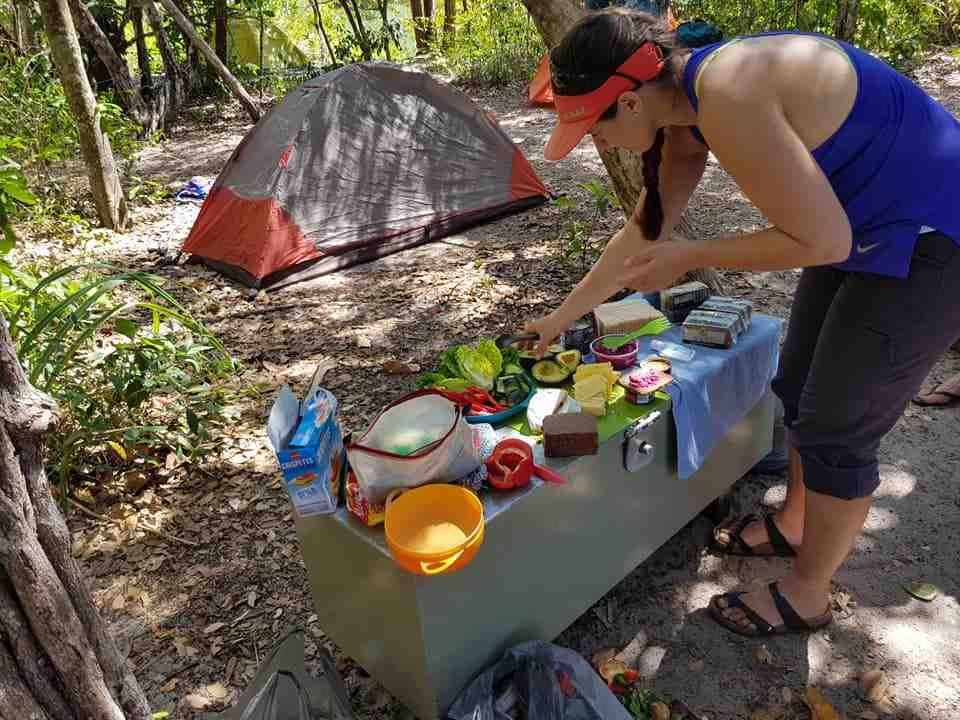
So now you’re well-equipped with some top hiking and nutrition tips for your next hike. The science behind it all is interesting but at the end of the day, what’s most important is that you feel strong and fuelled on your adventures. That way, you can give it your 110% and still have the energy to connect with others and actually enjoy the journey! If you want some inspiration for your next great adventure (and some delicious food inspiration and advice, too) check out our calendar HERE and pick your favourite. We’ll see you on the trail.


